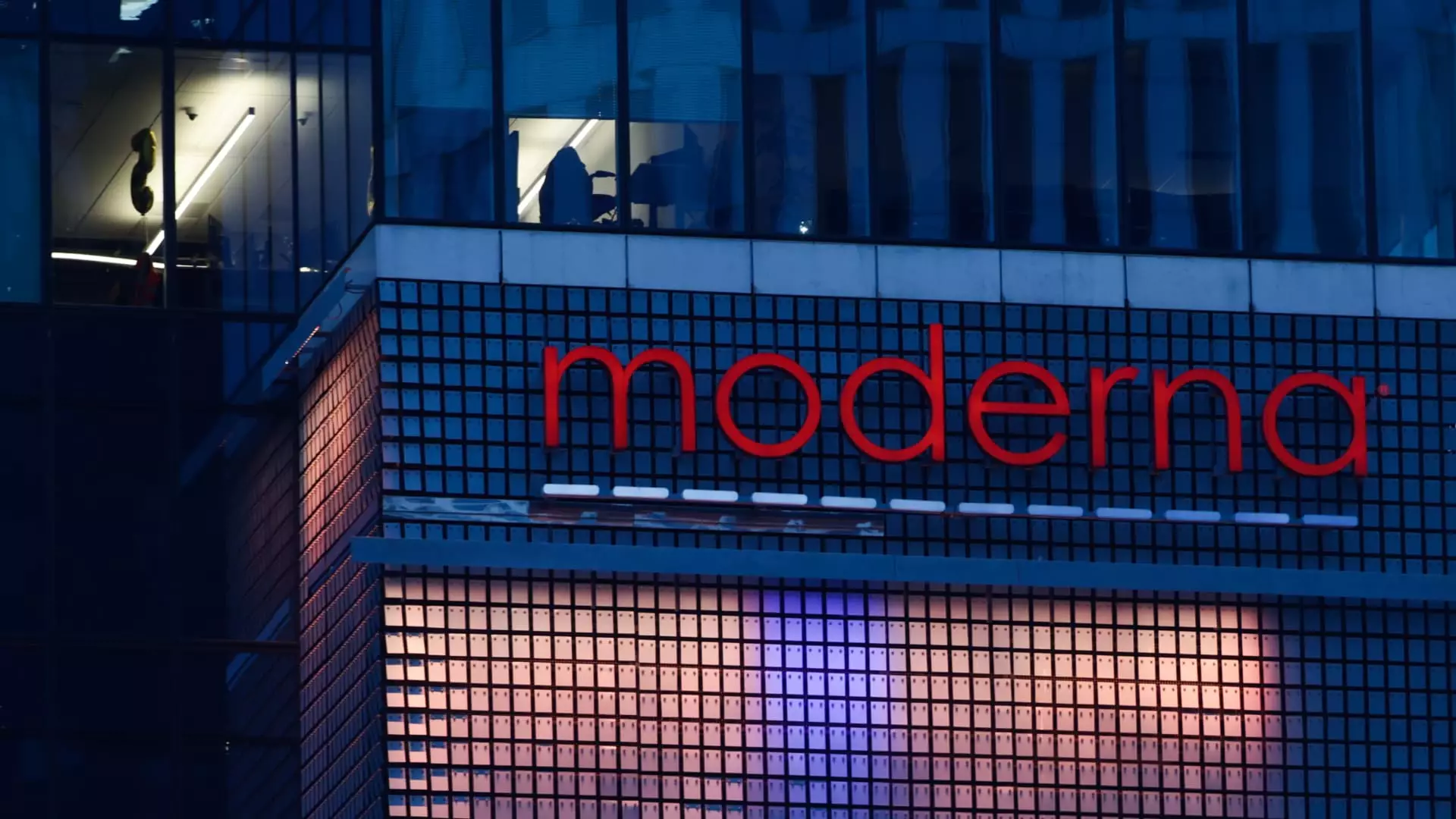Moderna’s recent surge of 2% in stock price, triggered by promising late-stage trial results for its flu vaccine, is a classic example of innovation stirring investor optimism. Yet, this isn’t just a biotech success story. The potential introduction of a standalone flu vaccine alongside a COVID combo shot could reshape viral prevention strategies. However, the real challenge lies in translating clinical successes into long-term profitability amid a saturated vaccine market. Moderna’s gamble highlights the tension between scientific breakthroughs and commercial viability — a dynamic often oversimplified by market enthusiasm.
The DOJ’s Influence on Tech Consolidation
Hewlett Packard Enterprise’s (HPE) and Juniper Networks’ remarkable rally following the Department of Justice’s settlement of their $14 billion acquisition lawsuit illustrates the increasing sway of regulatory bodies over tech mergers. This decisive DOJ move, ending uncertainty, signals a subtler acceptance of large-scale consolidations in the tech sector, perhaps out of recognition that American tech must compete globally. Still, this raises concerns about market dominance and its consequences for competition. For center-right liberals favoring free markets tempered with rule of law, this settlement strikes a reasonable balance, though vigilance remains paramount.
Meta’s AI Talent Grab: Innovation or Desperation?
Meta’s 2% gain on news of recruiting four top AI researchers from OpenAI into its Superintelligence group offers a mixed narrative. On one hand, it underscores Meta’s aggressive push to reclaim edge in AI innovation, crucial in a landscape dominated by intense rivalry. On the other, it reflects a scrambling for talent possibly indicating previous strategic missteps. The poaching spree can be read as both smart talent acquisition and a costly necessity to stay relevant. The long-term success of such concentrated AI efforts hinges on translating brainpower into meaningful products amid volatile consumer trust.
Home Depot’s Bold Play in Specialty Materials
Shares of GMS soared over 11% after Home Depot’s $4.3 billion acquisition bid, overshadowing an unsolicited offer from QXO. This deal exemplifies Home Depot’s ambition to strengthen supply chains and control over building materials, insulating itself from inflationary pressures and sourcing volatility. Strategically, it’s a proactive move that rewards shareholder confidence. Yet, the question must be asked: does such vertical integration risk stifling competition and innovation among suppliers? From a center-right perspective, such deals are acceptable when they create efficiencies but must be scrutinized to preserve competitive markets.
Palantir and Accenture: AI’s Federal Footprint Expands
The partnership between Palantir Technologies and Accenture Federal, reflected in their 5% and 1% stock boosts respectively, underscores the burgeoning application of AI in government operations. Automating federal agencies is not just about efficiency but transforming how bureaucracy functions. While this collaboration propels AI implementation forward, it raises important questions about government dependence on private tech firms and data security risks. Such public-private partnerships should balance innovation with accountability, aligning with center-right values of limited yet effective government intervention.
Disney’s Resilience Amidst Entertainment Uncertainty
Jefferies’ upgrade of Disney stock, prompting a modest 2% rise, spotlights the company’s surprisingly sturdy parks business and optimistic cruise revenue forecasts. In an era where streaming wars dominate headlines, Disney’s bet on physical experiences signals a nuanced understanding of consumer desires post-pandemic. However, the resilience of theme parks should not eclipse the risks posed by changing media consumption habits and global economic volatility. Disney’s strategy reflects a pragmatic fusion of content and experience, aligning with conservative economic optimism grounded in diversified portfolios.
Tesla’s Dip Amid Political Headwinds
Tesla’s 1% stock decline following legislative movement on President Trump’s spending bill reveals the precariousness of green tech in shifting political climates. Accelerated phase-outs of clean energy tax credits threaten the economic incentives driving electric vehicle adoption. This legislative development signals the tension between market forces and political interventions affecting climate goals. A center-right liberal view would advocate for market-friendly policies that encourage innovation without heavy-handed subsidies, warning that abrupt policy shifts risk destabilizing sectors critical for future competitiveness. Tesla’s stumble is a cautionary tale of how politicized energy policies can imperil even market-leading companies.

